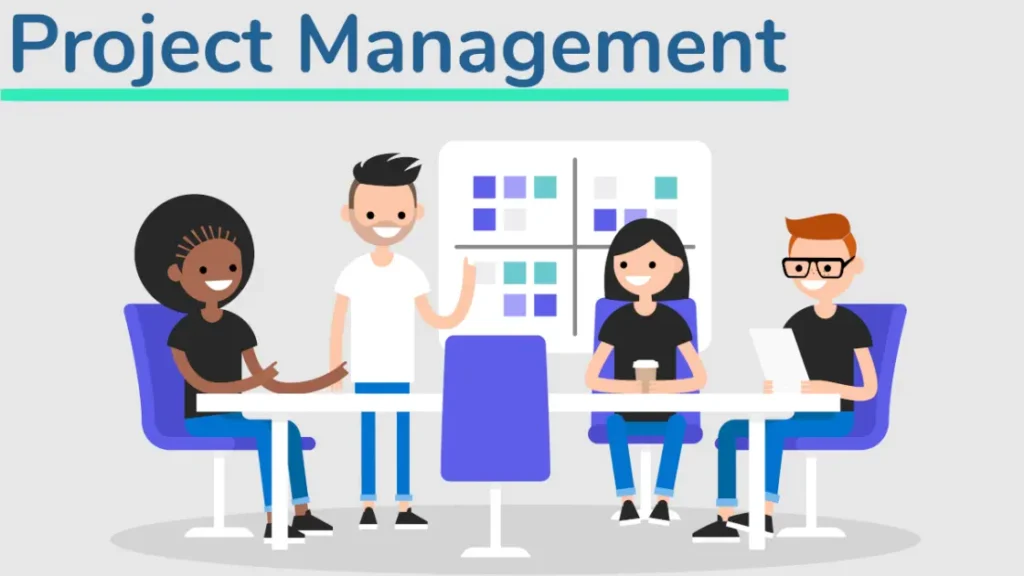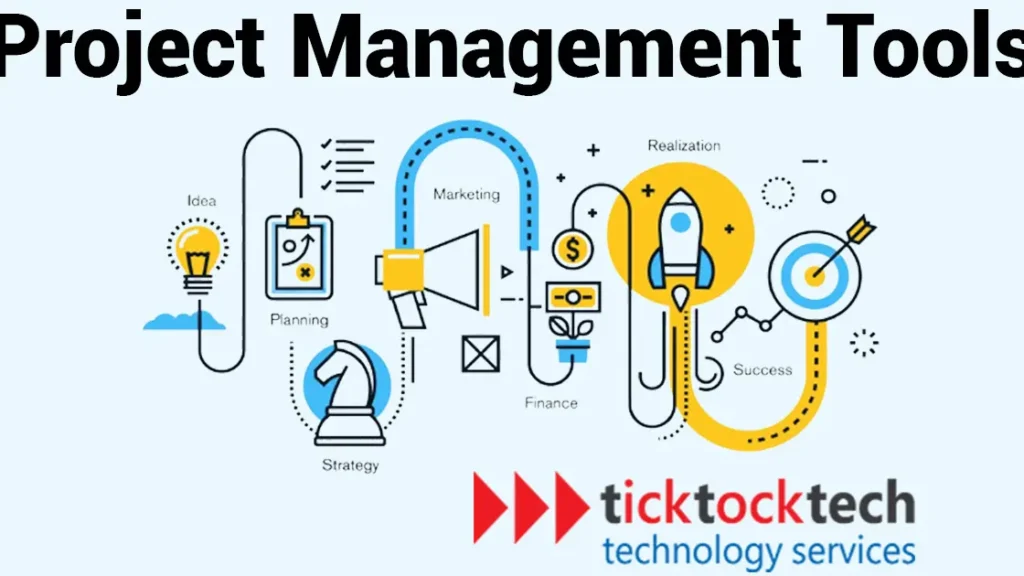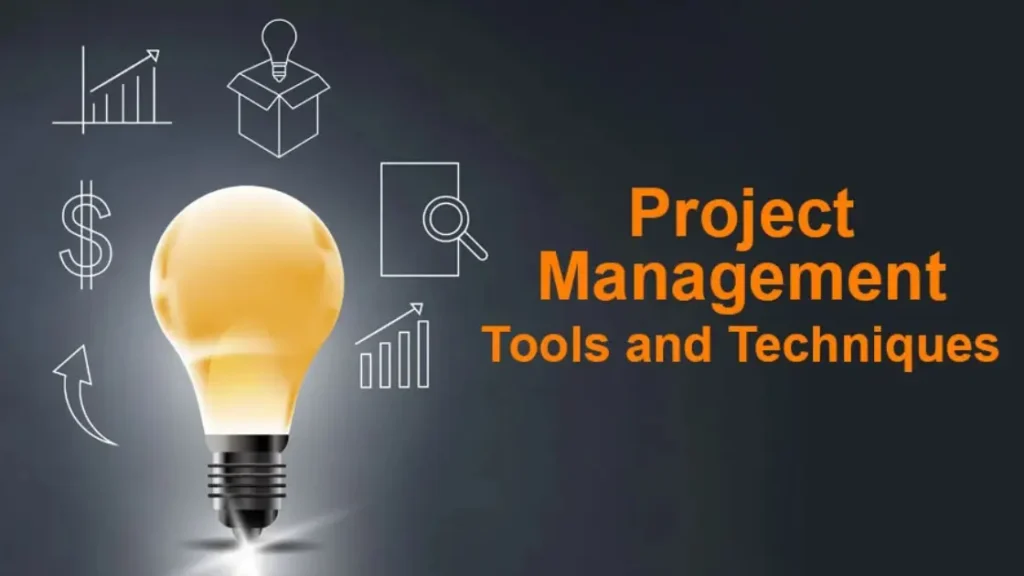Project management tools and techniques help plan, execute, and monitor projects efficiently. They include software, methodologies, and best practices.
Project management tools streamline task management, resource allocation, and team collaboration. Popular tools like Asana, Trello, and Microsoft Project offer features for tracking progress, managing deadlines, and facilitating communication. Techniques such as Agile, Waterfall, and Scrum provide structured frameworks for project execution.
These tools and methods enhance productivity, reduce risks, and ensure project goals are met on time. Effective project management combines these tools and techniques to deliver successful outcomes, optimizing both time and resources. Using the right tools and methods is crucial for project success, helping teams stay organized and focused.
Table of Contents

Credit: snacknation.com
Introduction to Project Management
Project management is the art and science of planning, organizing, and managing tasks and resources. It helps achieve specific goals within a timeframe. In today’s fast-paced world, effective project management is crucial. It ensures that projects are completed on time and within budget. Project management involves various tools and techniques. These help streamline processes and improve efficiency.
Importance of Project Management
Project management is essential for several reasons. It helps in achieving project goals efficiently.
- Resource Management: Proper allocation of resources prevents wastage and overuse.
- Time Management: Timely completion of tasks keeps the project on track.
- Cost Management: Budgeting helps avoid unnecessary expenses.
- Quality Control: Ensures the deliverables meet the required standards.
Effective project management also improves team collaboration. It enhances communication and reduces risks. This leads to higher success rates for projects.
Role of Project Managers
Project managers play a crucial role in project success. They are responsible for planning, executing, and closing projects.
- Planning: Project managers define project scope and objectives. They create detailed plans to guide the team.
- Execution: They ensure the project plan is followed. They manage resources and monitor progress.
- Closing: Project managers review the project outcomes. They ensure all objectives are met and close the project.
Project managers also handle risks and issues. They make decisions to keep the project on track. Their leadership and communication skills are vital. This ensures the team works effectively towards common goals.
Key Project Management Tools
Project management requires the right tools to keep tasks on track. Using the right project management tools helps teams collaborate and meet deadlines. Let’s explore some key project management tools that can boost productivity.
Popular Software
Many software solutions help manage projects effectively. Here are some popular choices:
- Trello: Uses boards and cards to organize tasks.
- Asana: Ideal for tracking project progress and assigning tasks.
- Monday.com: Offers customizable workflows and visual progress tracking.
- Microsoft Project: A comprehensive tool for detailed project planning.
- Jira: Perfect for software development and agile projects.
These tools offer various features like task management, time tracking, and reporting.
Traditional Tools
While software tools are popular, traditional tools also play a role. They include:
| Tool | Description |
|---|---|
| Gantt Charts | Visual timelines showing task schedules and dependencies. |
| Kanban Boards | Boards with columns for task stages. |
| Work Breakdown Structure (WBS) | Breaks projects into smaller, manageable parts. |
| Critical Path Method (CPM) | Identifies key tasks to meet deadlines. |
| PERT Charts | Graphs that estimate project timelines. |
These traditional tools help in planning, scheduling, and managing project tasks efficiently.
Techniques for Effective Project Management
Effective project management requires specific tools and techniques. These methods ensure projects run smoothly, meet deadlines, and stay within budget. Two popular techniques are Agile and Waterfall methodologies.
Agile Methodology
The Agile Methodology focuses on flexibility and customer satisfaction. Teams work in small, iterative cycles called sprints.
- Sprints: Short development cycles that last 2-4 weeks.
- Scrum Meetings: Daily check-ins to discuss progress and obstacles.
- Product Backlog: A prioritized list of tasks and features.
Agile allows teams to adapt to changes quickly. It ensures the continuous delivery of valuable products.
Waterfall Methodology
The Waterfall Methodology is a linear and sequential approach. Each phase must be completed before moving to the next.
| Phase | Description |
|---|---|
| Requirement | Gathering project requirements and defining scope. |
| Design | Creating detailed design documents. |
| Implementation | Writing and integrating code. |
| Verification | Testing and ensuring the project meets requirements. |
| Maintenance | Ongoing support and updates. |
Waterfall is ideal for projects with clear, fixed requirements. It ensures thorough documentation and meticulous planning.

Credit: ticktocktech.com
Benefits of Using Project Management Tools
Project management tools have become essential in today’s fast-paced work environment. They help teams stay organized, meet deadlines, and achieve goals. Using these tools brings various benefits that can significantly improve project outcomes.
Enhanced Collaboration
Enhanced collaboration is one of the key benefits of project management tools. These tools offer features like real-time chat, file sharing, and task assignments. Team members can easily communicate and stay updated. Everyone knows their role and responsibilities. This reduces misunderstandings and fosters a collaborative work environment.
| Feature | Benefit |
|---|---|
| Real-time chat | Instant communication |
| File sharing | Easy access to documents |
| Task assignments | Clear role distribution |
Improved Efficiency
Improved efficiency is another significant advantage. Project management tools automate many repetitive tasks. This saves time and reduces the chance of errors. Features like Gantt charts and calendars help in planning and scheduling. Teams can track progress and adjust timelines easily. This ensures that projects stay on track.
- Automated tasks save time.
- Gantt charts for better planning
- Calendars for scheduling
- Progress tracking for timely adjustments
Challenges in Project Management
Project management is a complex field. It involves many tasks and responsibilities. Project managers face numerous challenges. These challenges can impact project success. Understanding and addressing these issues is vital.
Common Obstacles
Every project manager encounters obstacles. Here are some common ones:
- Scope Creep: Uncontrolled changes in project scope.
- Budget Constraints: Limited financial resources.
- Time Management: Tight deadlines and schedules.
- Resource Allocation: Inefficient use of resources.
- Communication Gaps: Poor communication among team members.
Solutions and Strategies
Project managers can use various strategies to overcome challenges. Here are some effective solutions:
- Define Clear Goals: Set specific, measurable objectives.
- Budget Planning: Allocate resources wisely and track expenses.
- Time Management Tools: Use tools like Gantt charts and calendars.
- Resource Management: Assign tasks based on team strengths.
- Effective Communication: Use regular meetings and updates.
Below is a table summarizing common obstacles and their solutions:
| Obstacle | Solution |
|---|---|
| Scope Creep | Define Clear Goals |
| Budget Constraints | Budget Planning |
| Time Management | Time Management Tools |
| Resource Allocation | Resource Management |
| Communication Gaps | Effective Communication |
Expert Insights on Best Practices
Understanding project management tools and techniques can be challenging. But learning from experts can make it easier. Industry leaders have shared their insights on best practices. These tips can help you improve your project management skills.
Advice From Industry Leaders
Industry leaders suggest using a mix of tools and techniques. This approach helps manage projects efficiently. Here are some key insights from the experts:
- Use Agile Methodology: Agile allows for flexible planning. It helps teams adapt to changes quickly.
- Implement Kanban Boards: Kanban boards visualize work. They help track progress and identify bottlenecks.
- Leverage Gantt Charts: Gantt charts provide a timeline view. They help in scheduling tasks and tracking deadlines.
- Practice Risk Management: Identify risks early. Create a plan to mitigate those risks.
- Effective Communication: Use tools like Slack or Teams. Ensure clear and regular communication.
Case Studies
Real-world examples help understand the application of these tools. Below are some case studies highlighting successful project management practices:
| Company | Tool/Technique Used | Outcome |
|---|---|---|
| Tech Innovators | Agile Methodology | Reduced project delivery time by 30% |
| Creative Solutions | Kanban Boards | Improved team productivity by 25% |
| BuildIt Corp | Gantt Charts | Enhanced project tracking and met deadlines |
These case studies show the effectiveness of different project management tools. They highlight how adopting best practices can lead to success.

Credit: cdn.educba.com
Future Trends in Project Management
The world of project management is evolving rapidly. With constant advancements in technology and techniques, staying updated is crucial. This section explores the future trends in project management.
Emerging Technologies
Emerging technologies are reshaping project management. Artificial Intelligence (AI) is a transformative technology. AI helps in predictive analytics. It improves decision-making and project outcomes.
Blockchain technology ensures data transparency and security. It helps in tracking project progress and payments. This leads to increased trust among stakeholders.
Cloud-based tools are becoming popular. They provide real-time access to project data. Team members can collaborate from anywhere. This boosts productivity and efficiency.
Evolving Methodologies
Project management methodologies are also evolving. Agile and Scrum are gaining popularity. They focus on flexibility and quick delivery. Teams can adapt to changes swiftly. This is crucial in a fast-paced environment.
Hybrid methodologies combine the best of traditional and modern methods. They offer a balanced approach. Teams can use different techniques for different projects.
Lean project management aims to reduce waste and improve efficiency. It focuses on delivering maximum value to customers. This is achieved by continuous improvement and streamlined processes.
| Technology | Benefit |
|---|---|
| AI | Improves decision-making |
| Blockchain | Ensures transparency and security |
| Cloud-based tools | Enhances collaboration |
Staying updated with these trends is essential. It ensures project success and competitive advantage.
Conclusion
Effective project management tools and techniques streamline workflows and boost productivity. They ensure projects stay on track and meet deadlines. Utilizing these tools can lead to successful project outcomes. Choose the right tools for your team’s needs to maximize efficiency.
Embrace technology to enhance your project management capabilities and drive success.






Leave a Comment